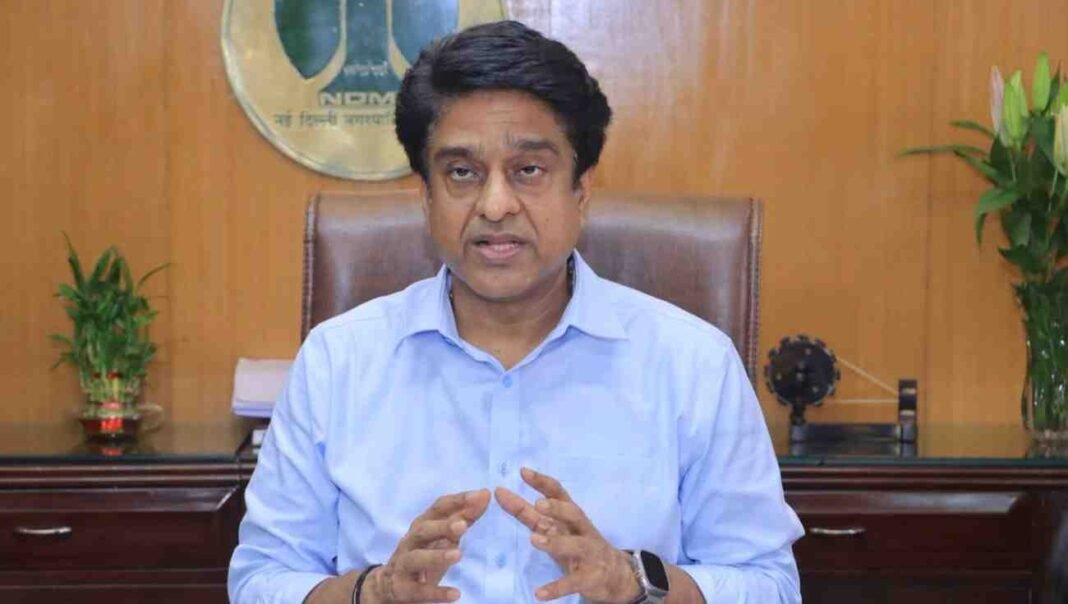New Delhi: In a major push for urban greenery and ecological sustainability, Shri Kuljeet Singh Chahal, Vice Chairman of the New Delhi Municipal Council (NDMC), unveiled an ambitious Tree Plantation Action Plan under the Hon’ble Prime Minister Narendra Modi’s visionary campaign, “Ek Ped Maa Ke Naam.”
The comprehensive initiative, aimed at enhancing New Delhi’s green footprint, was announced during a press conference held at Palika Kendra.
The campaign, which officially began on April 1, 2025, is already in full swing with over 204 trees and 18,280 shrubs planted across 89 locations. NDMC has set a bold target of planting 3,000 trees, 35 lakh shrubs, and 3,946 bamboo plants within the year.
Greenery Without Gaps: ‘Gap Filling’ Mission Intensified
One of the flagship components of the action plan is the “Gap Filling” campaign, which focuses on ensuring continuous green cover along major roads, roundabouts, and junctions.
Expanding significantly from previous years, this year’s campaign will cover nearly 80 roads, up from just 2 to 4 roads earlier. The initiative is being closely supervised by NDMC’s Horticulture Department, with the dual aim of urban beautification and air quality improvement by reducing particulate pollutants like PM10 and PM2.5.
Beautifying with Eco-Friendly Touch: 4,000 Coconut Shell Hanging Baskets
To elevate the aesthetic appeal of public spaces, NDMC will install 4,000 hanging flower baskets made from biodegradable coconut shells (नारियल के खोपा). These not only contribute to visual appeal but also promote eco-friendly alternatives in urban landscaping.
Water Sustainability and Rooftop Gardening
Stressing the importance of plant maintenance, Shri Chahal said smart and permanent watering systems are being implemented to optimize water use.
Additionally, NDMC plans to roll out a campaign to promote rooftop and organic gardening among residents to encourage decentralized urban greening.
Decentralized Sewage Treatment and Greener Infrastructure
As part of its broader environmental infrastructure upgrade, NDMC will set up nine decentralized Sewage Treatment Plants (STPs) at locations including Bapu Dham, Nehru Park, Akbar Road, and AIIMS. These STPs are expected to strengthen water recycling and conservation efforts.
Special Focus on Hariyali Teej – July 27
To commemorate Hariyali Teej, NDMC will organize a dedicated plantation drive on July 27, targeting the planting of 240 trees and 36,200 shrubs across 20 significant roads such as Tolstoy Marg, Mandir Marg, Bhai Veer Singh Marg, and Jantar Mantar Road.
Native Species for Sustainable Ecosystems
The plantation drive prioritizes native tree species like Neem, Peepal, Arjun, Jamun, Ashoka, and Imli, while shrub varieties include Bougainvillea, Murraya, Calliandra, and Karonda. These species are chosen for their ecological compatibility and ability to support local biodiversity.
Bamboo Drive and Natural Green Screens
A distinctive component of the plan is the bamboo plantation initiative, which aims to plant 3,946 bamboo plants—specifically Golden and Budha Valley varieties—along walls on roads like Akbar Road, Krishna Menon Marg, and Subramanium Bharti Marg. These serve as natural green screens and help enhance urban biodiversity.
Tree Ambulance and Plant Protection Services
Highlighting plant health, Shri Chahal mentioned that NDMC has deployed a Tree Ambulance for treating diseased or damaged trees. Additionally, a specialized Plant Protection Cell at Lodhi Garden has been equipped to conduct tree surgeries and soil treatments, staffed by a dedicated horticulture team.
Community Engagement at Core
NDMC is planning a structured calendar of plantation events to facilitate wide participation. The drive will include Union Ministers, foreign embassies, RWAs, MTAs, bar associations, hospitals, educational institutions, and general public stakeholders.
NDMC’s Green Leadership
Shri Chahal proudly stated that NDMC, despite covering just 3% of Delhi’s land area, contributes nearly 55% of its green cover—underscoring its status as India’s greenest urban local body. Currently, NDMC maintains over 1,150 acres of green spaces, including six major parks, 981 CPWD-maintained parks, 122 colony parks, and 15,000 avenue trees.
Concluding the press interaction, Shri Chahal reaffirmed NDMC’s commitment to ecological balance and climate resilience. He emphasized that the plantation initiative not only supports environmental goals but also reflects the broader vision of Viksit Bharat @2047, aiming to create a cleaner, greener, and more sustainable capital.








